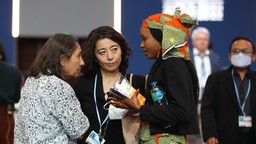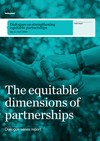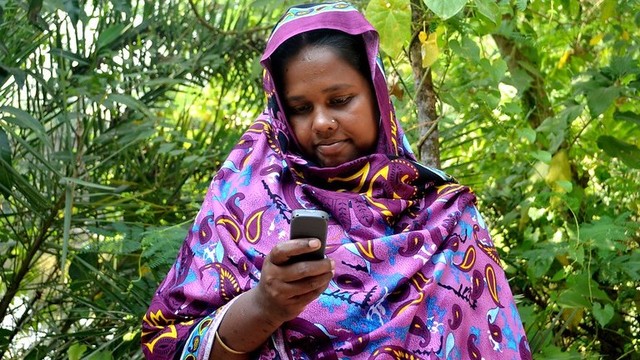Strengthening ethical and equitable partnerships
IIED is working to develop a shared vision of what equitable partnerships mean and embed this thinking internally and in our work with partners.
Director, LIFE-AR interim secretariat, IIED's Climate Change research group

Participants at the 17th Development & Climate Days (D&C Days), stemming from a range of organisations and different power structures, share knowledge in Madrid in December 2019 (Photo: Anne Schulthess, IIED)
Structural inequalities and power imbalances between the global North and South still exist at every level of development and research systems, including in how partnerships are nurtured and managed. Gender inequalities, social injustices, colonial legacies, racism and other intersectional inequalities continue to manifest in relationships among individuals and institutions.
As a research institution working to achieve social and economic justice, IIED risks perpetuating the dynamics of inequality by not acknowledging these issues of power and resource differences. This work aims to change this dynamic.
Partnerships are central to IIED’s vision and mission. But good practice on partnerships has proved challenging to set out in policy documents and deliver through internal systems. Discussions with other international development organisations suggest that the question of how to be a good partner is a common one.
Genuine collaboration requires the removal of power injustices and must be based on a shared understanding of equity and fairness. Reimagining partnerships will mean adopting an actively decolonial, anti-racist, gender-equitable approach that actively pushes for equity – rather than assuming that it will happen naturally.
We need inclusive spaces, open engagement and a willingness to learn and to transform fixed thinking. We need accountability mechanisms that explicitly monitor whether interventions are based on a truly equitable partnership.
What is IIED doing?
We are developing a framework that embeds and operationalises collectively produced principles of equity and fairness into IIED’s work with partners. We will use this process to influence the practices of internal and external stakeholders.
Using deliberative dialogues to assess existing power dynamics between IIED and our partners, we will explore alternative approaches that can nourish more equitable and ethical partnerships.
We will work together to develop a shared vision for equitable partnerships that will set out the underpinning values, principles and normative standards for our practice. We will analyse and address colonial perspectives and other social and environmental injustices in our partnership practice.
We aim to define partnership standards based on principles of equity and fairness, and aligned with anti-racism, gender, environmental justice and decolonising approaches, building on existing IIED experience of working in fair partnerships.
We are reviewing our existing partnerships, procedures and other ways of working, together with related operational tools, to embed the ethical partnership principles in our work.
We will also document and publish case studies of the good practices IIED and partners have learned from on promoting ethical and equitable partnership practices and where challenges still exist.
Impact
We aim to conduct our analysis in ways that will engage and influence wider stakeholders.
This work is focused on influencing not just IIED staff, but also partners, donors, intermediaries and collaborators, and on promoting change to address inequality and colonial legacies in funding, research and development practice. This includes the work of intermediary agencies such as UN bodies, locally led adaptation partners and donors, among others.
We will seek to create learning and sharing spaces to discuss difficult questions and hope to share knowledge and methodologies for fostering equitable partnerships, based on the findings of this research.
IIED provides numerous collaborative spaces for international communities of practice, including IIED Debates, conferences on community-based adaptation and the Development and Climate Days conferences, all of which emphasise a focus on local voices and lived experiences.
Reframing and reimagining such inclusive spaces will demonstrate IIED's commitment to, and good practice in, fostering trusted partnerships with the global South and internationally.
News and updates
Publications
Additional resources
Blog: Every voice counts: addressing inequality in research and development, by Tracy Kajumba, Marina Mayer (2022)
Blog: Rethinking research and development approaches from a decolonisation perspective, by Tracy Kajumba, Daniela Nemeti Baba (2021)
Blog: Assessing progress – putting IIED’s gender research ambitions into practice, by Giulia Nicolini (2021)






